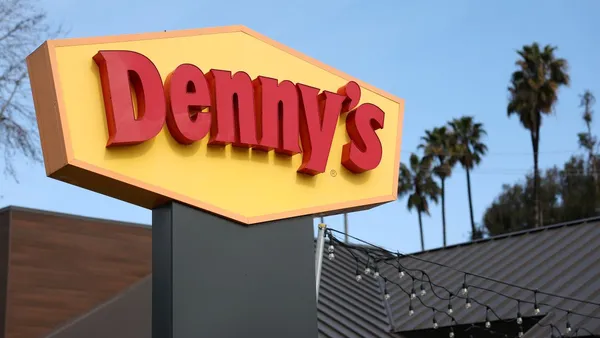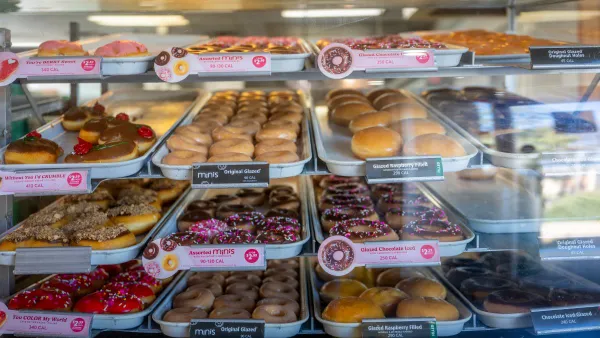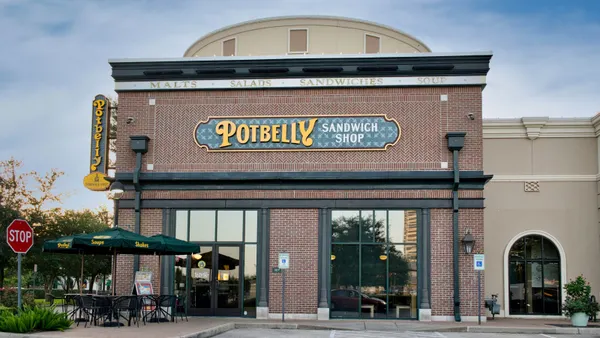Dive Brief:
- After abruptly closing 95 restaurants on Sunday, the parent company of New England-based Papa Gino’s Pizzeria and D’Angelo Grilled Sandwiches filed for bankruptcy protection, reported Restaurant Business. Wynnchurch Capital, a private equity firm specializing in middle-market deals, has agreed to a $20 million credit bid for the remaining 178 locations of PGHC Holdings and will provide up to $13.8 million in financing for the sale process.
- "For some time, we have been pursuing a plan to strengthen our financial footing and secure capital for investment in our restaurants, while also addressing our significant debt load," said CFO Corey Wendland said in a release. PGHC filed for bankruptcy to allow the remainder of its restaurants to operate "with improved liquidity" during the sale, which must be court-approved. The company also laid off 1,100 workers, according to Restaurant Business.
- PGHC hopes the sale to Wynnchurch or a potential higher bidder will allow the company to remodel existing restaurants, upgrade digital capabilities including delivery and open new, more modern stores.
Dive Insight:
In the court filing, Wendland pointed to burdensome debt, higher minimum wages, tough competition and shifting consumer tastes — specifically, a preference for takeout and delivery over dining in — as reasons for the bankruptcy. The filing also cited pressure from national chains spreading their footprint in core New England markets.
Regional chains have been pressured not only by major players but newcomers offering more customizable options and on-trend branding. That goes for both pizza and sandwiches, as Jersey Mike's, Jimmy John's and even Arby's gain steam in the latter segment.
Papa Gino's loyal following in New England — the chain ranked fifth on The Daily Meal's 2018 list of favorite pizza chains and is the official pizza partner of the Patriots — wasn't enough to keep it afloat in a competitive landscape. The pizza chain opened new stores without updating existing ones and while it has mobile and online ordering, reviews of the app on iTunes are mediocre. Wendland emphasized modernizing remaining locations of both Papa Gino's and D'Angelos, which will likely mean more digital infrastructure akin to changes happening at chains from McDonald's to Chipotle.
The quick-service segment in general has been squeezed by higher minimum wages and an inability to find and retain staff. Soaring demand for delivery has also forced restaurants to change course in everything from kitchen line setup to staffing, on top of partnering with one or several third-party delivery services that eat into slim margins.
Domino's has invested heavily in technology and posted higher sales than location-leader Pizza Hut for 2018; Papa John's has also played well in the digital era. All three chains have focused attention on international growth in recent years, though domestically, they have dominated thanks largely to sophisticated mobile apps and loyalty programs.
According to Pizza Magazine, speed, convenience and delivery have become essential themes for success. Independent pizza joints have suffered in this digital transition, losing a net of more than 1,200 stores, compared to a net gain of nearly 1,000 for chains, the top 50 of which account for 60% of all industry sales.
Open since 1961, Papa Gino’s operated more than 200 restaurants by 1990, but failed to meet sales goals, cutting staff and selling the company to two venture capital firms the next year. In 2016, Papa Gino's landed at #217 on Technomic's list of the top 500 chains with about $145 million in sales, but numbers had already slipped.
PGHC did not alert the 1,100 affected employees prior to closing 47 Papa Gino’s and 45 D’Angelo stores, a choice the company described as regrettable, but necessary for the company's future in a Facebook post on Monday. Its main New England competitor Bertucci's also filed for bankruptcy in May. A month later, Planet Hollywood's parent company bought that struggling chain for $20 million and closed 15 restaurants.










